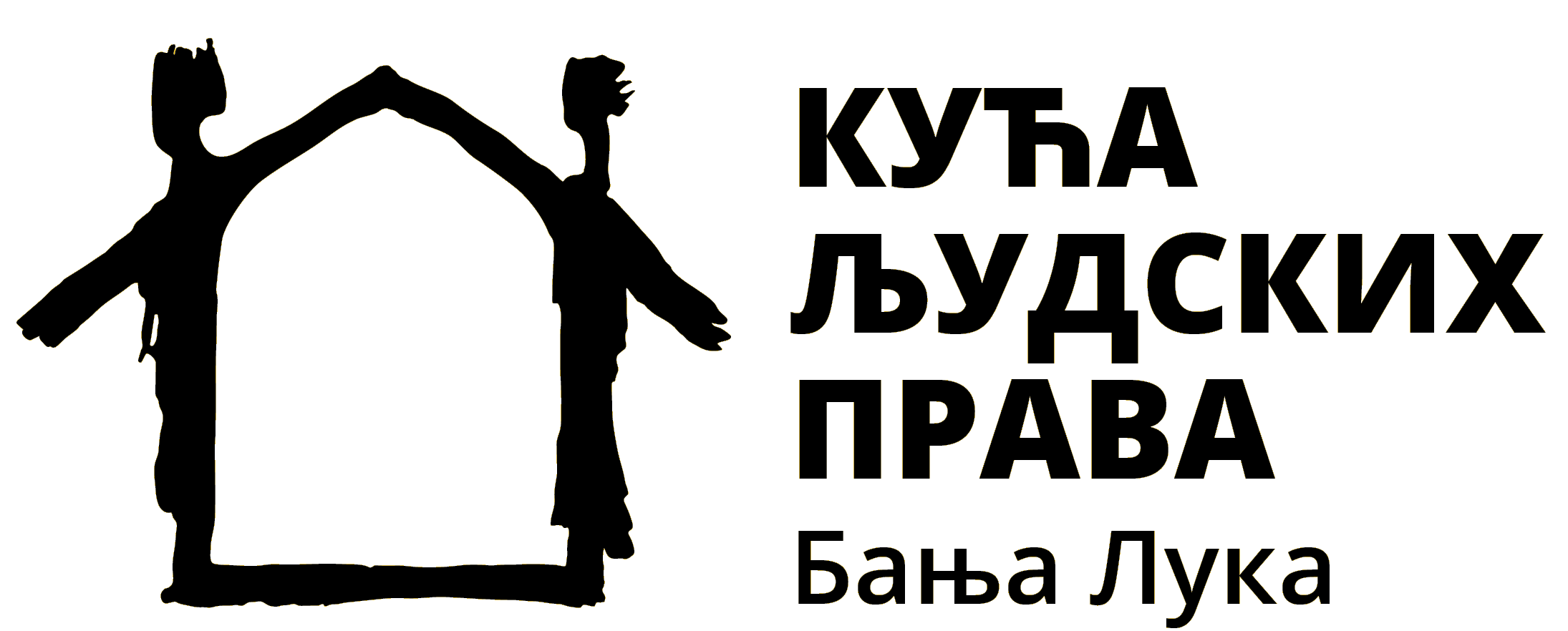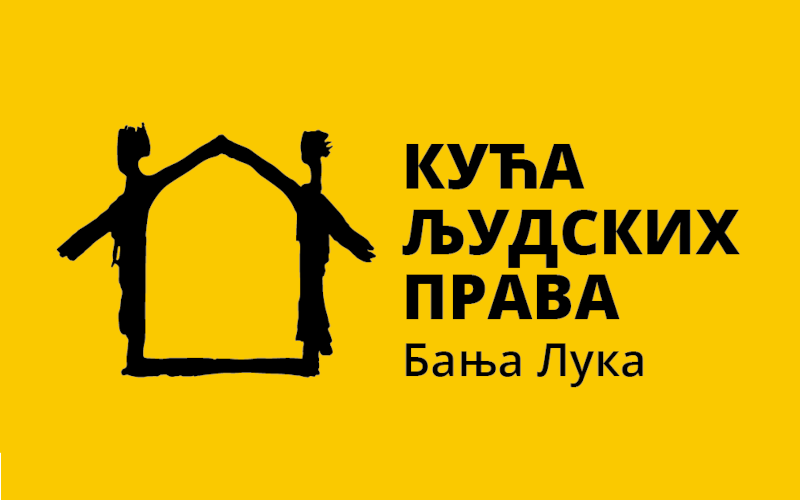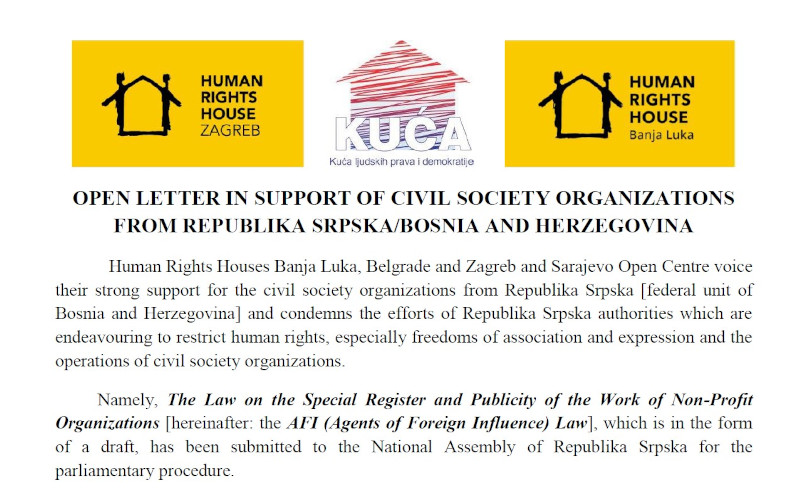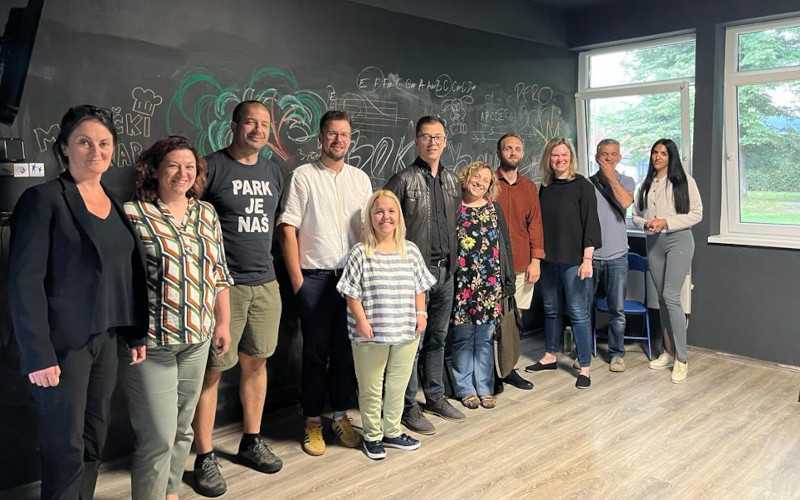The Human Rights House Banja Luka published a second report on the position, challenges and obstacles faced by human rights defenders in Bosnia and Herzegovina, entitled “Human Rights Defenders in Bosnia and Herzegovina – Rights, Position and Obstacles (2023 – 2024)”.
The report covers a period of one year, i.e. the time elapsed from June 1, 2023 to June 1, 2024.
The report aims to show the basic problems and challenges that human rights defenders in BiH faced in this period, especially in the context of the narrowing of the space for the work of human rights defenders and the decline in the level of human rights protection provided by public authorities. The report is not only aimed at reporting and pointing out problems and obstacles, but also at affirming the importance of the role of human rights defenders in preserving the basic rights of all individuals and groups.
During the reporting period, there was an increase in institutional non-transparency and pressure on human rights defenders in BiH. The authorities in the Republic of Srpska in particular developed legislative proposals that make it more difficult for human rights defenders to operate; the criminalization of defamation and the announcement of the establishing register of “agents of foreign influence” posed serious threats to freedom of expression, assembly and organization. In addition, many human rights defenders experienced additional pressure through public statements by politicians and media outlets close to the authorities, who labeled them as “traitors”, “foreign mercenaries” and “agents of foreign influence”. Such rhetoric fostered an “atmosphere of fear” and insecurity, thus narrowing the space for human rights defenders to operate freely in the country.
Our research and interviews with key stakeholders clearly indicate a systemic neglect and lack of genuine cooperation with human rights defenders. Institutions at many levels of government in BiH often lack effective strategies for cooperation with civil society organizations and human rights defenders, and existing interactions are largely improvised and formalistic. This lack of coordination results in non-transparent selectivity, with certain organizations only engaging when the authorities have a certain interest in engaging, particularly in relation to international obligations.
Of particular concern is the lack of dialogue and participation in the shaping of public policies and laws. On the rare occasions when consultative processes are organized, they often remain a mere formality without any significant impact on the adoption of regulations. Examples in which civil society experts who act as human rights defenders are marginalized in working groups indicate a trend in which dialogue with human rights defenders is becoming less inclusive and thorough. Such an approach prevents human rights defenders from contributing to certain legislative processes, which undermines the quality of public policies and laws in the long term. The negative effects of the political and institutional exclusion of human rights defenders directly threaten both the scope and quality of human rights and freedoms for all citizens of BiH.
Also, human rights defenders faced various forms of threats during the reporting period, while support from competent institutions remained limited and often inadequate. Although certain threats were reported to competent authorities, institutions in the reporting chain often failed to take concrete measures, which indicates serious shortcomings in the system of protection of human rights defenders.
In addition to direct threats, human rights defenders also faced other forms of intimidation, including underestimation, discrediting, pressure on family members and limited access to certain services. The digital space became the primary area for attacks on human rights defenders, so hate speech and threats directed at human rights defenders were significantly more frequent online than in the physical environment. However, the authorities often did not take such threats seriously and did not take appropriate measures accordingly.
A special challenge for human rights defenders was the hostile environment towards human rights defenders, which was especially strong in the Republic of Srpska, where attempts of intimidation were usually supported by the authorities. This further contributed to the feeling of insecurity and marginalization of human rights defenders. Bearing in mind our findings from our research, it is clear that there is a systemic problem of de-legitimization and intimidation of human rights defenders.
The entire report in English language can be downloaded here. You can read this report directly on our website below.



